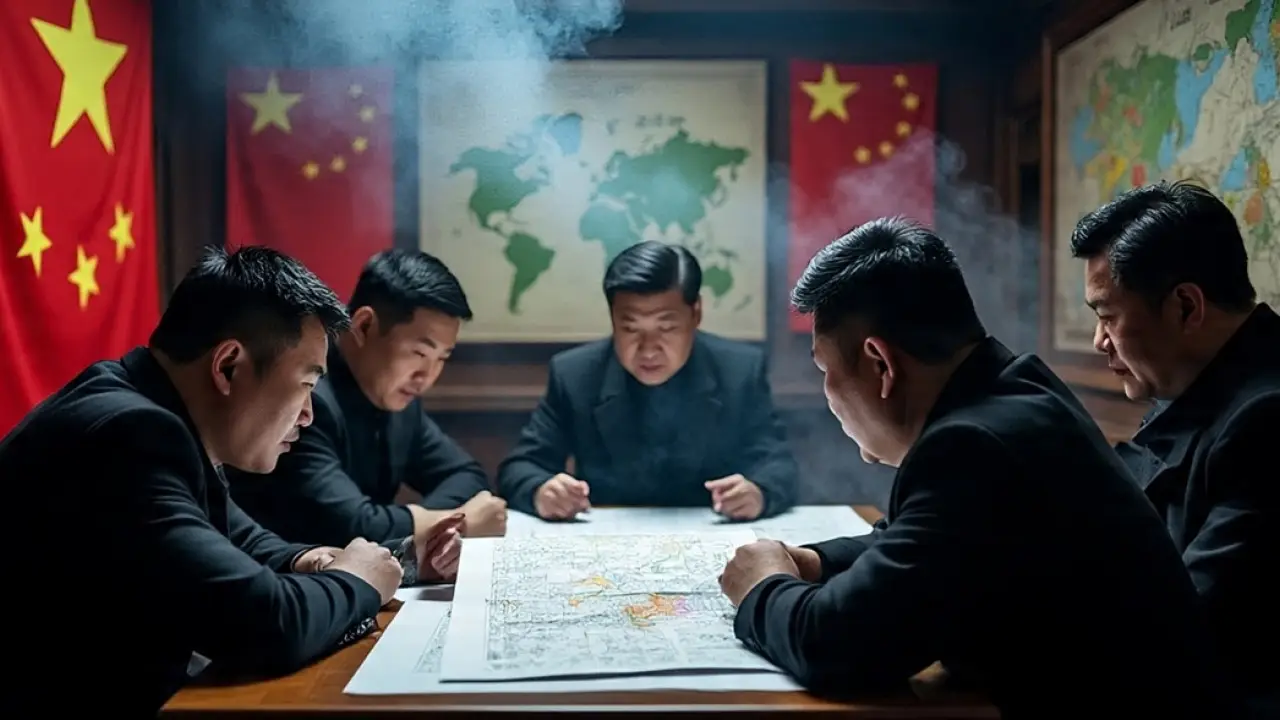
Xi Jinping Vanishing Act (Social Media)
International News: The supreme leader of the world’s most powerful authoritarian regime has vanished. Not from the earth, but from public view, diplomacy, and dialogue. Chinese President Xi Jinping has been absent from recent key events—including the BRICS Summit in Brazil—and the silence from Beijing is deafening.
Rumors, uncertainty, and controlled silence paint a picture eerily familiar to anyone who has studied the volatile past of the Chinese Communist Party (CCP). The question gripping global intelligence circles: Is Xi Jinping being challenged from within? Or is this the calm before another ruthless purge?
Since the Pahalgam attack and Xi’s conspicuous absence from several international meetings, whispers have grown louder. In a state where media is strictly censored and dissent is buried before it surfaces, the absence of an all-powerful leader doesn't go unnoticed.
No official statement. No foreign appearance. No controlled photos. The optics themselves are disturbing.
And with the People's Liberation Army (PLA) itself under a dark cloud—after massive anti-corruption purges targeting top generals—speculation has morphed into alarm: Has the dragon turned on its own head?
Unofficial reports claim that President Xi has survived six attempts on his life—not by foreign agents, but allegedly by his own internal adversaries. These claims, though unverified, don’t exist in a vacuum. In a political structure where even whispers are weighed before spoken, such bold rumors speak volumes.
What adds fuel to the fire is that this isn’t unprecedented. The CCP, since its birth in 1949, has been a theatre of bloodless and bloody coups, factionalism, and backstabbing—most of them scrubbed clean from official records.
Xi did not rise quietly. His 2012 ascension was marked by the fall of Bo Xilai, a rising star backed by influential factions. Once in command, Xi revived a Mao-style cult of personality and launched a sweeping anti-corruption campaign, eliminating hundreds of officials—including top military brass.
But with every purge came a new enemy. In a country where the military and party have always danced a delicate tango, Xi broke tradition. He tilted the balance, centralized power, rewrote the Constitution to remove term limits, and made himself irreplaceable. But in doing so, he created resentment in the very power structure that sustained him.
Mao Zedong was a revolutionary, not an administrator. Despite absolute power, his legacy crumbled after his death. None of his purges could prevent the party from morphing under Deng. No matter how authoritarian a Chinese ruler becomes, history shows he cannot guarantee the continuity of his ideology.
And Xi Jinping knows this. Which is why his iron grip appears even tighter now, with loyalty tests, data surveillance, and ideological education at unprecedented levels. But the tighter the grip, the greater the pressure—until something, somewhere, breaks.
The world cannot afford to blink. A vacuum at the top of China’s rigid hierarchy can trigger:
Maybe Xi Jinping isn’t missing. Maybe he’s just consolidating power away from the spotlight, preparing for the next purge or reshuffle. Or maybe he’s being cornered, his enemies circling, just like the many before him who ruled China with unchecked power—and paid the price. Whatever the case, China’s silence today echoes with history’s loudest warnings.





Copyright © 2026 Top Indian News
